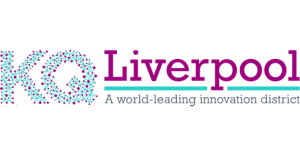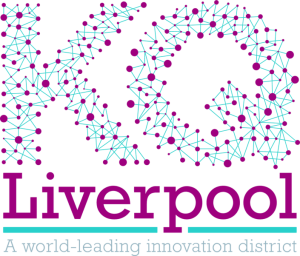LCR announced as the UK’s second Investment Zone
- The Liverpool City Region has been unveiled as England’s second Investment Zone, focused on Life Sciences
- Sites in Halton, Knowsley, Liverpool, Sefton and St Helens could be set to benefit from £310m of private investment and more than 4,000 new jobs over the next five years.
- An initial £10m from a US pharmaceutical company to enhance its capabilities in manufacturing a drug used to treat cancers, arthritis and skin conditions
Communities across the Liverpool City Region could be set to benefit from over 4,000 new jobs and a multi-million-pound investment in the life sciences sector as part of the UK’s second Investment Zone.
The government has today (26 July 2023) launched England’s second Investment Zone in Liverpool City Region, which could unlock £320 million of private investment and deliver 4,000 jobs, across the Liverpool City Region over the next 5 years.
An initial £10 million investment will be made by US pharmaceutical manufacturer TriRx, to enhance its capabilities to manufacture monoclonal antibodies, a type of immunotherapy that work by blocking certain diseases from affecting healthy cells and are used to treat numerous types of diseases including cancers, arthritis and skin conditions.
This investment in the city region’s existing Speke Pharma cluster – home to one of the UK’s leading regions for bioprocessing – is the first step in unlocking a total pipeline up to £320 million of further private funding from a range of investors in the life sciences sector, helping to deliver over 4,000 jobs in the region over the next 5 years.
Backed by £80 million in government funding, the Investment Zone will benefit from a range of interventions which could include skills, infrastructure and tax reliefs, depending on local circumstances – with the potential to make the Liverpool City Region a pharmaceutical production superpower.
The health and life sciences sector already contributes an estimated £290m to the Liverpool City Region’s economy every year and Mayor Rotheram, has an ambitious target to invest 5% of its GVA to research and development – almost double the national target.
Mayor Steve Rotheram, the Liverpool City Region Combined Authority, regional universities and other local partners will continue to work with the government to co-develop the plans for their Life Sciences Investment Zone, including agreeing priority development sites and specific interventions to drive cluster growth, over the summer, ahead of final confirmation of plans.
Steve Rotheram, Mayor of the Liverpool City Region, said:
“Our area is fortunate to play home to world-leading clusters in life science research and innovation, which support thousands of secure, well-paid jobs and training opportunities for local people. I am incredibly proud of what our region has achieved in the sector – but this is just a down payment on my future ambitions. I want us to go even further and establish our region at the forefront of UK science and innovation.
“With a potential £310m worth of investment and thousands of local jobs on offer, it is clear that this is an opportunity worth exploring. Yet, throughout this process, I have been clear that any investment in our area must go much further than purely financial incentives. I want to use our status as a force for good, to connect our residents up to secure, well-paid jobs and training opportunities, and attract transformational investment into our area.
“To play our part in making that happen, we will be investing 5% of GVA in R&D over the next few years – that is nearly double national targets. Becoming an innovation superpower might sound like a lofty ambition – but I believe that if anywhere has the potential to achieve it, then it’s the Liverpool City Region.”
Mark Proctor, AstraZeneca Site Lead for Speke said:
“AstraZeneca welcomes the establishment of the Liverpool City Region Investment Zone focussed on life sciences, which has the potential to attract more businesses to the region’s already thriving medicine development and manufacturing cluster.
We employ 400 people at our site in Speke to manufacture our intranasal influenza vaccine, used in the UK for the child and adolescent immunisation programme and exported to markets around the world.
The site has the potential to expand into new technology platforms for vaccines and we look forward to working with the Liverpool City Region to identify opportunities to develop these capabilities in the coming years.”
Tim Tyson, Chairman and CEO of TriRx, said:
“We are delighted to be expanding our capability in this critical immunotherapy area, to become a worldwide centre of technical excellence located in the UK in the monoclonal antibody development and manufacturing field to serve the human and animal pharmaceutical markets”.
The Liverpool City Region Life Sciences Investment Zone will be developed alongside the city region’s freeport, which became operational earlier this year.
By grouping high-productivity and innovative businesses close together, the freeport can play a role in the region’s work to tackle the underlying weaknesses in the local job market such as productivity, pay and job security.
The region’s leaders have chosen to pursue businesses and industries that align with the values and priorities of the Combined Authority. These include innovation in advanced manufacturing, pharmaceuticals and green energy – with a particular focus on the region’s target to be net zero carbon by 2040 at the latest and protections in place for both environmental standards and workers’ rights.



